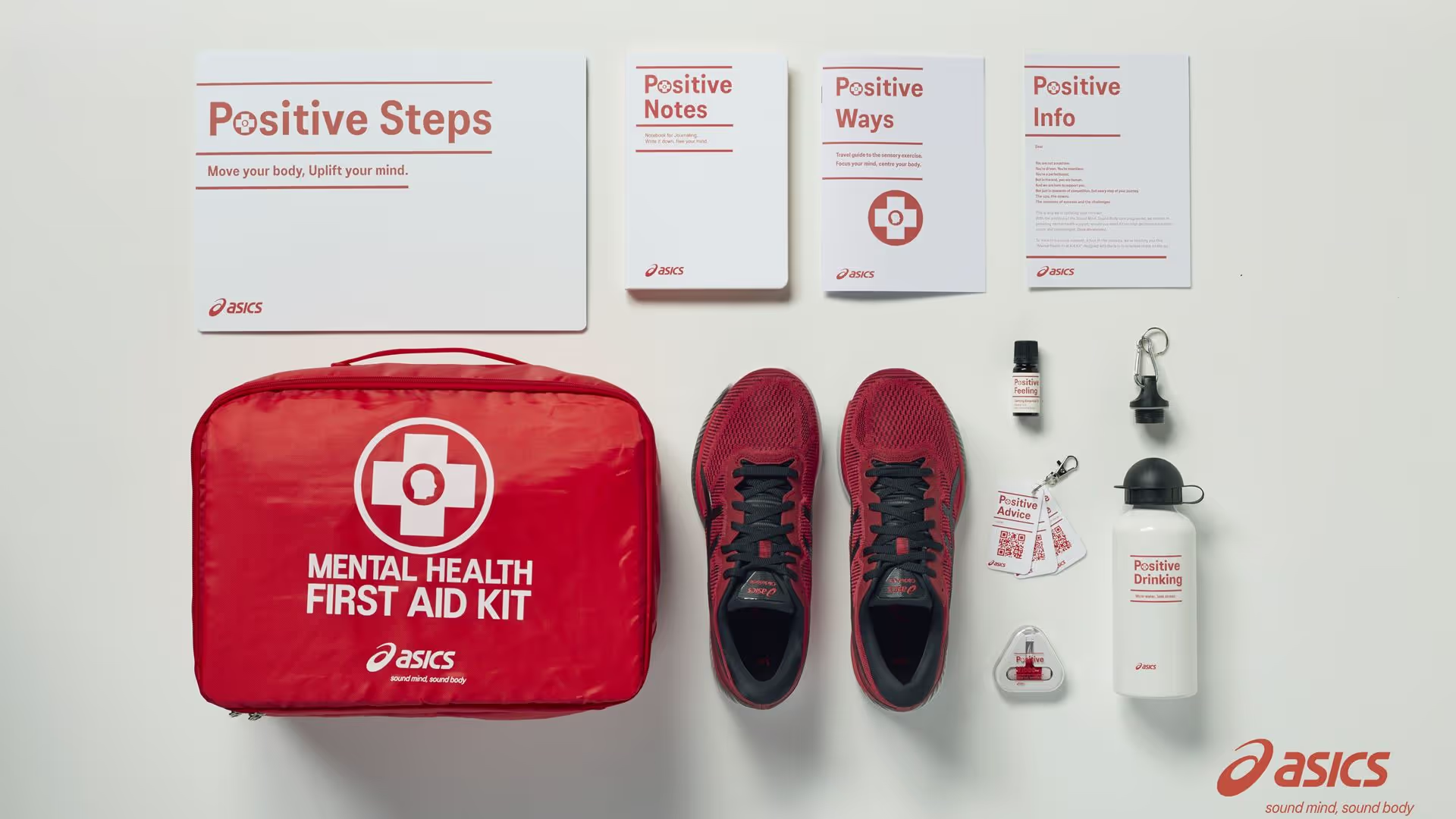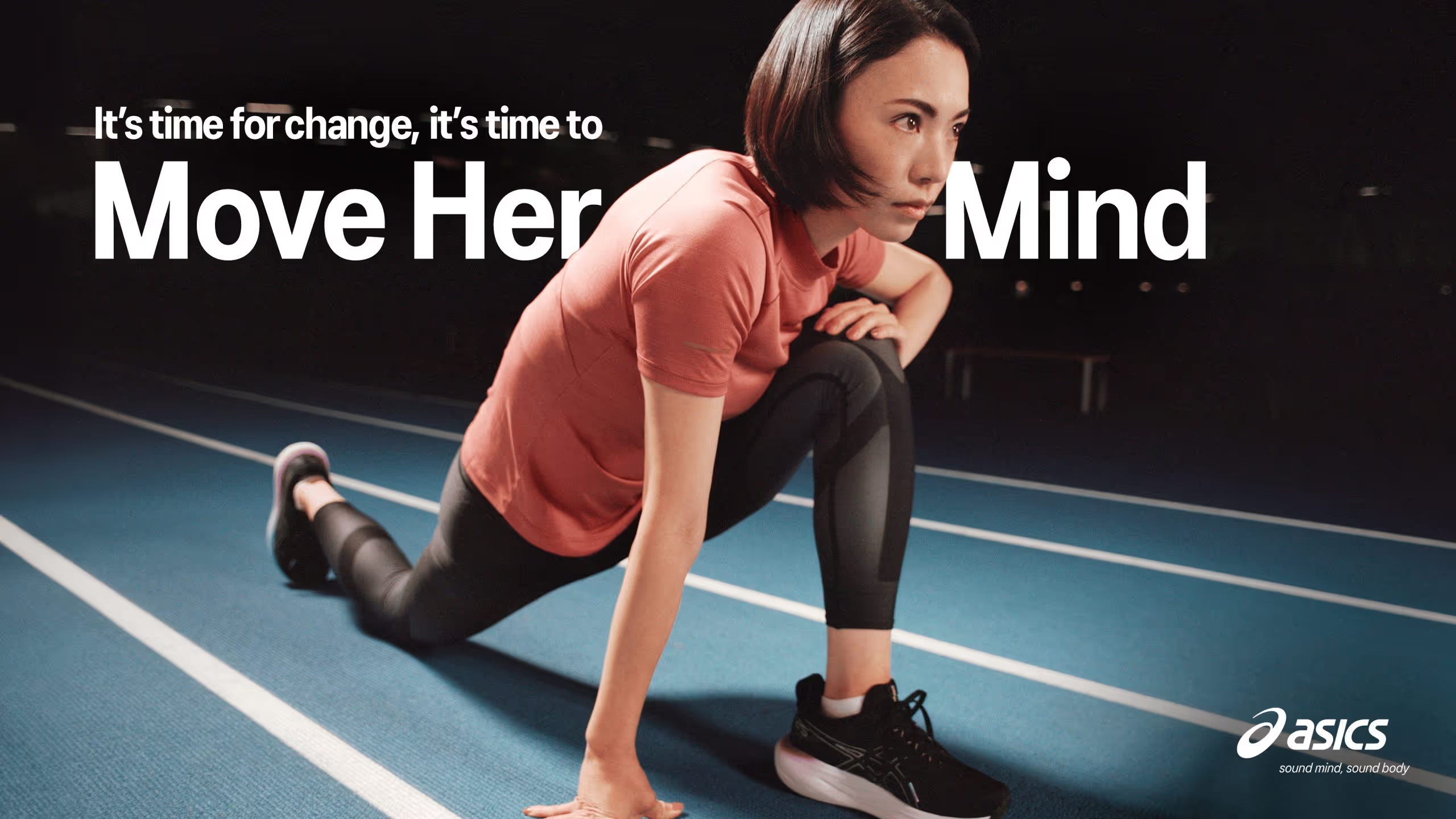Brian Cox Takes the Lead as "World’s Scariest Boss" in ASICS' Mental Health Campaign

https://www.youtube.com/watch?v=3XFXcBdXqKEBritish actor Brian Cox, renowned for his powerful performances in film and television, takes on a striking new role in ASICS' campaign for World Mental Health Day. As the "World's Scariest Boss," Cox embodies a character that highlights the often intimidating nature of workplace environments and the mental health issues that can arise in such settings. This unusual portrayal aims to spark conversations about mental health, pushing the boundaries of traditional campaigns.
Who is Brian Cox?
Brian Cox is a critically acclaimed actor, celebrated for his work in prestigious films and television series. With a career spanning several decades, he has garnered immense respect in the industry for his ability to bring complex characters to life. Born in Dundee, Scotland, Cox's journey in acting began in theatre before transitioning to film roles that showcased his versatility and depth.In recent years, he has gained popularity among younger audiences for his role in HBO's "Succession," where he plays Logan Roy, a powerful media mogul. This character's formidable presence adds layers to Cox's portrayal of the "scariest boss" in ASICS' campaign, making the connection between the character and real-life issues more poignant. His ability to convey authority and vulnerability simultaneously resonates with viewers, making his role in the campaign even more impactful.

The "World's Scariest Boss" Concept
The concept of the "World's Scariest Boss" serves as a catalyst for discussions about workplace dynamics and mental health. By presenting a character that represents intimidation, pressure, and high expectations, ASICS encourages viewers to reflect on how such environments can affect mental wellness. The campaign leverages Cox's daunting persona to challenge individuals and organisations to reconsider their approach to workplace culture.This innovative campaign shines a light on the subtle yet pervasive issues that can arise in professional settings, ultimately leading to detrimental effects on mental health. By integrating humour and a touch of fear, ASICS seeks to engage audiences in a dialogue about the importance of mental health awareness in the workplace. The campaign also emphasises the need for supportive leadership and open communication, encouraging employees to voice their concerns and seek help when needed. In a world where the stigma around mental health is gradually diminishing, this initiative stands as a reminder of the collective responsibility to foster a healthier work environment.Furthermore, the campaign aligns with ASICS' broader mission of promoting physical and mental well-being through sports and movement. By addressing mental health in conjunction with physical health, ASICS reinforces the idea that both aspects are crucial for overall wellness. The partnership with Brian Cox not only amplifies the message but also illustrates how influential figures can play a pivotal role in advocating for change. As the campaign unfolds, it invites viewers to consider their own experiences and the importance of creating workplaces where mental health is prioritised and valued.

The Importance of World Mental Health Day
World Mental Health Day, observed on October 10th each year, serves as a vital reminder of the significance of mental health in all aspects of life. This annual event aims to raise awareness of mental health issues and promote initiatives that support mental well-being globally. It provides a platform for various organizations to engage in meaningful conversations surrounding mental health care and accessibility.
The Origin and Purpose of World Mental Health Day
The day was established in 1992 by the World Federation for Mental Health to provide an opportunity for global education and awareness about mental health issues. The intent has always been to advocate for mental health rights, move beyond stigma, and help prioritise mental wellness alongside physical health.World Mental Health Day not only encourages individuals to seek help and support but also calls on societies to work collectively towards creating conducive environments for mental health awareness. With campaigns like ASICS', awareness is further amplified, engaging more people in discussions surrounding mental health. This year's theme, which focuses on the importance of mental health in the workplace, highlights the need for organisations to foster a culture of openness and support, ensuring that mental health is prioritised just as much as physical health.

The Impact of Mental Health on Work Performance
Mental health plays a crucial role in overall work performance and productivity. Numerous studies illustrate that poor mental health can lead to increased absenteeism, reduced productivity, and strained workplace relationships. Employers increasingly recognise the link between mental wellness and workforce efficiency, prompting them to seek ways to support employees.By addressing mental health at work, ASICS is contributing to a broader understanding of its impact on both individual performance and company culture. Encouraging open conversations can foster greater empathy and support among employees, paving the way for healthier workplace environments. Moreover, initiatives such as mental health days, employee assistance programs, and wellness workshops are becoming more commonplace, allowing employees to prioritise their mental health without fear of judgment. These practices not only enhance individual well-being but also cultivate a sense of community and belonging within the workplace, which can lead to higher morale and job satisfaction.Furthermore, the integration of mental health awareness into corporate policies reflects a growing recognition of the diverse challenges employees face, including stress, anxiety, and burnout. Organizations that actively promote mental health resources and training for managers are better equipped to identify and address issues before they escalate. This proactive approach not only benefits the employees but also contributes to the overall success and sustainability of the organization, creating a win-win scenario for all stakeholders involved.
ASICS' Commitment to Mental Health
ASICS has a long history of commitment to health and wellness, and mental health is a critical component of its advocacy efforts. The company's dedication extends beyond just promoting physical activity; it encompasses a holistic approach to well-being that includes mental health as a primary focus. By recognizsng the intricate relationship between physical and mental health, ASICS aims to foster a more comprehensive understanding of wellness that resonates with individuals from all walks of life.

Previous ASICS' Initiatives for Mental Health
ASICS has previously launched several initiatives aimed at promoting mental health awareness. For instance, their "ASICS #Mindful Movement" campaign encouraged participants to engage in physical activities that boost mood and mental well-being. By promoting the positive effects of exercise on mental health, ASICS has underscored the importance of integrating physical fitness into mental health strategies. This initiative not only provided a platform for individuals to explore the benefits of movement but also fostered a sense of community among participants, creating a supportive environment for sharing experiences and challenges.Additionally, ASICS collaborates with mental health organisations to develop programs that provide resources and support for individuals struggling with mental health challenges. Through these initiatives, the brand has continuously shown its commitment to mental wellness and community support. Workshops, webinars, and community events have been organised to educate the public about mental health issues, while also offering practical tools for coping and resilience. This proactive approach has helped to destigmatise mental health discussions, encouraging more individuals to seek help and support when needed.
The Future of ASICS' Mental Health Advocacy
The future of ASICS' advocacy efforts appears promising, as the brand recognises the evolving conversation around mental health. With November 2023's introduction of new initiatives, ASICS aims to further enhance awareness and support for mental health, ensuring it remains a focal point in its corporate social responsibility efforts. The company is exploring innovative partnerships with tech companies to develop apps and platforms that facilitate mental health tracking and provide users with personalised resources, making mental wellness more accessible than ever.Through continuous partnership with mental health professionals and organisations, ASICS will likely work to improve access to resources that promote mental well-being. The integration of campaigns like the "World’s Scariest Boss" demonstrates the company's innovative approach to mental health advocacy in a compelling and relatable manner. This campaign not only highlights the importance of workplace mental health but also encourages open dialogue about stressors that individuals face in their professional lives. By addressing these issues head-on, ASICS is setting a precedent for other companies to follow, paving the way for a more supportive and understanding corporate culture that prioritises mental health alongside physical health.
The Intersection of Celebrity and Advocacy
The convergence of celebrity influence and social advocacy brings unique dynamics to campaigns like ASICS'. Celebrities can capture public attention more readily and use their platforms to elevate important conversations, such as those surrounding mental health.

The Power of Celebrity Influence in Social Causes
Celebrity endorsements in campaigns can significantly amplify messages and encourage action. When figures like Brian Cox lend their voices to mental health issues, they help normalize discussions around what is often stigmatized. This can inspire audiences not only to engage with the content but also to take personal steps towards improving their own mental health.Moreover, when celebrities share their own experiences with mental health, it adds authenticity and relatability, breaking down barriers that discourage open dialogue. ASICS leverages this influence wisely, using a well-known personality to further its commitment to mental health awareness.
Criticisms and Challenges of Celebrity Advocacy
However, the intersection of celebrity and advocacy is not without challenges. Critics often argue that celebrity involvement can overshadow the voices of professionals and individuals with lived experiences, potentially diluting essential discussions. The portrayal of mental health by celebrities might reinforce stereotypes or misunderstandings about mental illness.Additionally, the risk of tokenism arises when celebrities engage with social causes for mere publicity rather than genuine commitment. ASICS must ensure that its partnership with Cox remains authentic and focuses on fostering a genuine conversation about mental health rather than the celebrity's persona overshadowing the message.
The Impact of the Campaign
The ASICS campaign featuring Brian Cox as the "World's Scariest Boss" aims to generate substantial discourse around mental health, impacting audiences on multiple levels. By using humor and celebrity recognition, the campaign seeks to engage a diverse audience, from corporate employees to students.
Public Response to the Campaign
The public response has been largely positive, with many praising ASICS for its innovative approach to discussing mental health. Social media platforms have been filled with conversations sparked by the campaign, as users share their own stories and experiences related to mental health in the workplace.The blending of entertainment with advocacy fosters awareness that reaches individuals who may otherwise remain disengaged. As viewers connect with the comedic yet serious undertone of the message, ASICS successfully broadens the dialogue surrounding mental health.
Evaluating the Campaign's Success in Raising Mental Health Awareness
To assess the campaign's success, it is essential to consider engagement metrics and feedback from participants. Increased online discussions, shares, and a surge in inquiries regarding mental health resources indicate a favorable outcome. Additionally, collaborations with mental health organizations and the implementation of follow-up initiatives will further determine the campaign's long-term impact.In conclusion, ASICS' campaign with Brian Cox is a potent reminder of the importance of mental health awareness. By courageously addressing the issues faced by individuals in workplaces, it resonates across demographics, fostering a culture of understanding and support that extends beyond World Mental Health Day.

.avif)



